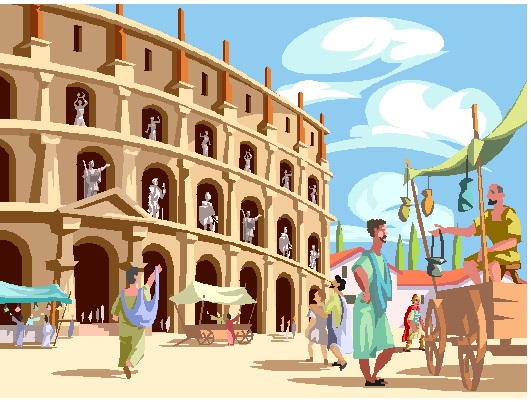“In Rome do as Romans do” – this was the sentence oft repeated in my school days – be it an English Grammar class or Social Studies – and the essence of this statement was ingrained on our malleable minds. When in Rome, we have to behave and do as the Romans do!

A ‘Gujju’ by ancestral lineage, a Goan by birth, a Maharastrian – as studied in Marathi up to Standard IV, and being an avid reader and having multi-cultural friends, I prided in being fluent in few of Indian languages; as also English; and a working knowledge of French. And I tried to use the language of the place I visited (to the extent possible). For example, in Ahmedabad, I tried talking in Gujarati to the person who was checking (frisking) me at the airport – and he admonished me saying that though he understood what I was talking, he was not a Gujarati, and couldn’t reply to me in the same language. I let it be – after all airport security is Central Government job!
In Mumbai, I talked in Marathi everywhere; and was well understood. I was delighted to listen to various styles of Marathi; and regaled the family members with the mimicry of various dialects. Coming back to Goa, I looked forward to talking in Konkani – which I pride in saying that I speak it better than my mother tongue Gujarati – to friends and all. If wishes were horses…..
Speaking Konkani in restaurants – I was met with stony glare. “Je ne comprend pas” was the attitude. Speak in Hindi or English – or get lost. I had to eat the proverbial crow (before I really ate some real food) as also the pride of being Konkani lover, and ordered the food in Hindi. Then and then alone, we were served our food.

Pragna and I went to a well known departmental store (bazaar) on 18th June Road, Panaji. The store was comparatively empty, and we were delighted when the sales girls fawned upon us. Pragna started in English – and requested for various things – which were promptly displayed before of us. I switched to my Konkani – requesting for additional information, etc. and was met with a cold stare and that déjà-vu sensation of “Je ne comprend pas”.
“What? You don’t speak Konkani?”
“No sir, speak in English only, please”.
I was little disappointed. Nonetheless, we continued our shopping. All of a sudden, there was a hush, and the sales girl dropped us like a hot charcoal (not a potato); and rushed to a ‘gora’ couple who had just stepped in. The sales person spoke in a ‘foreign’ language – and guided the couple to the appropriate counter; and then returned to us. I followed the couple around the store, and found almost all the sales personnel speaking the said foreign language. Returning to ‘our sales girl’, I enquired of her as to which language she was speaking.
“Russian” – was the answer. And she spoke Germany fluently, too. And of course, English. What about Hindi and any of the other Indian languages?
“Oh, I have good knowledge of Hindi. And no, I absolutely don’t know Konkani or Marathi or Gujarati”.
I stifled my feeling of disgust; and insisted to Pragna that we don’t buy anything from this bazaar. Also a true Goan at heart, she sympathized with my feelings; and agreed – though the deals were good. We walked out of the store – “empty hands we had came to this store, and empty hands we left the store” – having enriched our data base that the languages are not everything. Sometimes, being a Russian or a German seems better.
And I am learning not to speak the language of the place anymore. For in the name of labour mobility and globalization of economy, everything works – except the knowledge of my Konkani.
And yes, Mrs. Rodrigues and Mrs. Chico – you were wrong. In Rome, you don’t have to do as Romans do. You need to do as the paying customers do. Else you perish.
I shed a solitary tear for loss of Konkani. And tell to myself –
“Don’t cry for me, Konkani” – on the tune of Madonna’s “Don’t cry for me, Argentina”.









Correct observation. In Roman do as the paying customers do….but only the Gora paying customers not the Indian paying customers.